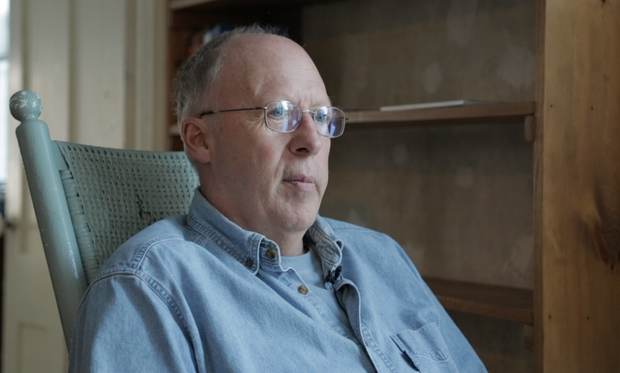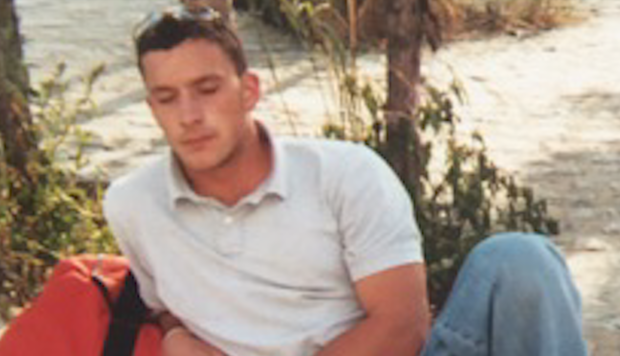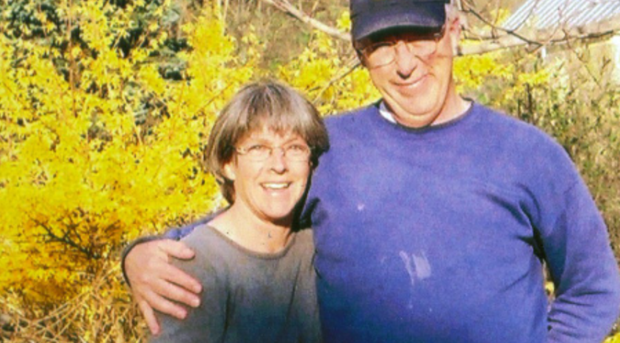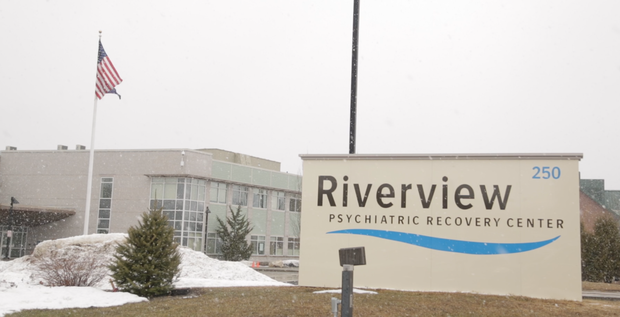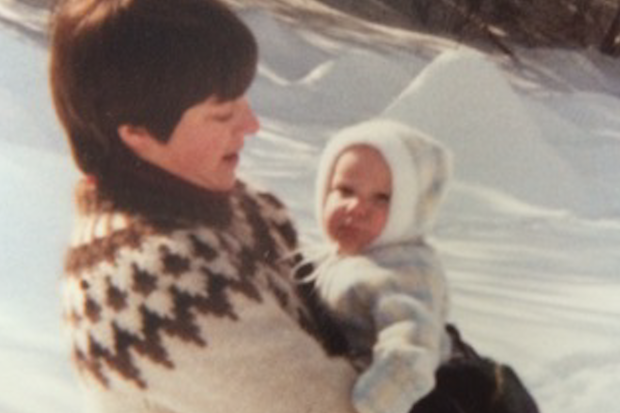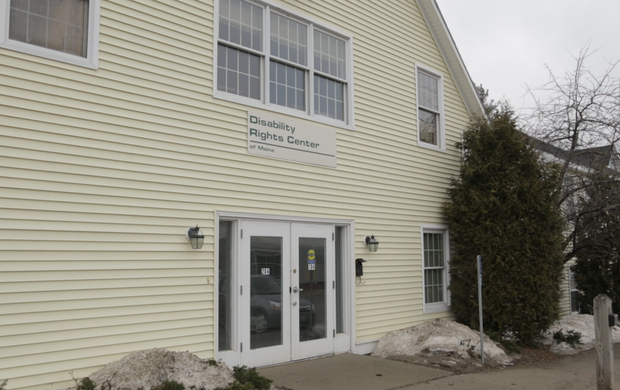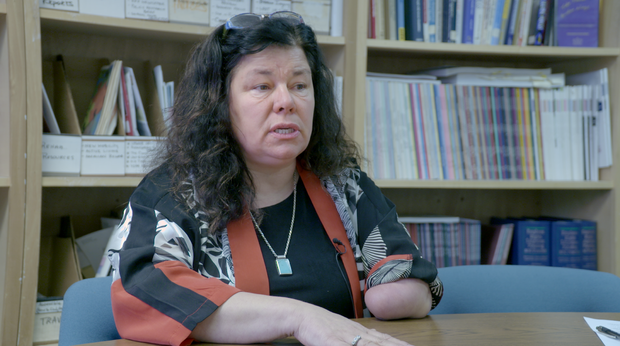Violent minds: Standing at the crossroads of mental health, public safety
Joe Bruce will never forget the afternoon of June 20, 2006 in the tiny town of Caratunk, Maine, a community of just several dozen people.
Bruce, arrived home that day - an unusually stormy one - to a gruesome discovery. He found pools of blood in the kitchen and a trail that led to the bathroom. There, he found the body of his slain wife.
"I never pictured myself as the kind of person that could run out of their own house screaming, but that's exactly what happened," said Bruce, now 63, swallowing his tears. "I mean - I - I was screaming. I ran out the door of my house into the yard going 'Oh my God! Oh my God, Amy!'"
A cold realization added to Bruce's shock: He knew their eldest son, Will, was responsible.
A year earlier, William Bruce, then 23, was diagnosed with paranoid schizophrenia after series of violent incidents associated with mental illness. According to recent studies, psychosis increases the odds of people committing a violent act by 50 percent, on average.
"There were several different diagnoses," Joe said on a recent March morning. "The final one came down when Willy was in Acadia [psychiatric hospital]."
But the diagnosis and subsequent treatments (Bruce was in and out of mental health facilities in the year leading up his mother's death) wasn't enough to avert the family tragedy. For Joe Bruce, it's clear where the blame lies.
"The mental health system wasn't there for us. In Will's case, it wasn't until he killed his mother that he got help."
Like most states, Maine requires that the mentally ill pose a direct threat to themselves or others to be involuntarily committed. Most leaders and advocates of the mental health system agree that it's difficult for mentally ill people to access treatment and services. In February 2015, a Government Accountability Office report investigating the state of America's mental health industry identified 112 programs across eight federal agencies that claimed to support more than 11 million Americans suffering from serious mental illness. The same report concluded that they were largely uncoordinated and bureaucratic. Of the $147 billion budgeted for mental health in 2014, less than half - $62 billion - was allocated to both treatment and research.
When he killed his mother, Bruce believed she was an al Qaeda agent.
"We asked him a lot of questions over a 13-hour period -- and everything that he said made sense -- but then when we zeroed in on the crime itself, it was almost like he was detaching himself and start talking about something else - whether it was Osama Bin Laden or the CIA. He just - it's like he wasn't coming back to reality," said Detective Sergeant Steve Webster, one of the two officers who interviewed Bruce on the night of his arrest.
Bruce was found not guilty of murder by reason of insanity in 2007 and sent to Riverview Psychiatric Recovery Center in Augusta, Maine, for treatment. He was placed in a group home in March 2014 but was returned to Riverview in January after he was caught using illegal drugs, the family said.
"I didn't believe I had a mental illness for the longest time, I felt it was bunch of bogus," he told CBS News over the phone. Staff at Riverview declined to allow an in-person interview with Bruce. They also denied request for interviews or comment from hospital staff about the case.
Many studies of individuals with schizophrenia report that approximately half of them have moderate or severe impairment in their awareness of illness - a condition known as anosognosia. That phenomenon isn't uncommon among other severe mental illnesses. Studies of bipolar disorder suggest that approximately 40 percent of individuals with this disease also have impaired awareness of illness.
"It's complicated because, you know, I had so many different delusions and I was psychotic so much until they got me on medication. It was ..." the phone crackled as Bruce drew a sharp breath. "It was really hard to see what reality was.
"Dad and I don't talk about it very often. ... I can't believe it ever got to that. That I would do something like that to my mom, you know. ... She was a wonderful person."
As a teenager, Bruce spent one week at Jacksonbrook Institute - now called Spring Harbor.
"By the time he was in high school, Amy and I were worried about him," Joe said. "His brother had straight As, and he was about 15 when he had the first bizarre incident," he continued, explaining how, on the day in question, Will had got into trouble at school and was nowhere to be found that afternoon.
"He left a note, and somehow I knew he would be in cabin," Joe said, referring to one of small cabins behind the family home.
"I ran down there. He was sitting on floor and he had syringe with antifreeze," Joe said. "I didn't even think. I just grabbed the syringe, pulled it out and took him to hospital."
Joe outlined several other incidents that highlighted his son's pattern of schizophrenia, including a near-fatal hunting accident in 2005, during which Will turned a gun on his father and two friends.
"Will was very meek. He sat at the kitchen table as we waited for the state trooper," said Joe, describing the scene at home that evening. He and Amy had called the police on their son for the first time that day, and Will was taken to Acadia Hospital. He was sent there again the following year after another attack on his father. The judge ordered him committed for 90 days, and on February 6, 2006 Bruce was moved to Riverview Psychiatric Recovery Center in Augusta, Maine, where he remained until he was discharged on April 20, 2006 - two months before murdering his mother.
"He was really sick when he went into the hospital," Joe said as he stood in the kitchen of his 100-year old white wood panel home. A large stack of labeled, worn-looking, medical records sat on the table. "When he got out of the hospital - it was unbelievable."
Because his son was an adult when his illness took a turn for the worst, Joe had to petition a judge to make him his son's legal guardian in order to obtain his medical records, including notes from doctors at Riverview. He succeeded in 2007.
"I couldn't believe it. I thought they had failed to treat him," he said. "I didn't know that there were people inside the hospital that had worked to aid him in getting out of the hospital without receiving treatment."
Joe Bruce is referring to patient advocates - independent agents who visit facilities like Riverview to ensure that the rights of the mentally ill are protected. They're overseen by the federally funded National Disability Rights Network.
"In our 30-year history, we can point to many, many people who were over-medicated under the theory that they were danger to themselves. They were misdiagnosed. We see to that - in name of protection," Curt Decker, executive director of the National Disability Rights Network (NDRN), told CBS News. Groups under the banner of the network are typically nonprofits but sometimes receive additional funding from states.
"We are part of a justice system in this country: everyone is entitled to representation. Would you eliminate people with mental illness from our justice system?" he asked.
Because of a history of abuse suffered by the mentally ill in asylums, Congress - in the 1986 Protection and Advocacy for Individuals with Mental Illness Act (PAIMI) - mandated that mental health institutions work with patient advocates.
The PAIMI program is operated by the Protection and Advocacy System, part of the federal government's Substance Abuse and Mental Health Agency (SAMHSA). The NDRN coordinates closely with the Protection and Advocacy System. In 2014, the network's budget was $36 million and they served around 14,000 clients.
In the wake of violent acts like the Bruce case, as well as mass killings like Sandy Hook and Aurora, Colorado, critics of the mental health system argue that advocate's efforts to protect civil liberties of patients have gone too far.
"By report, the advocates got involved and repeatedly pressed for his release," Joe read from the medical records in his kitchen. He says he "absolutely blames" the advocates involved for what happened to his son:
"Any psychiatrist will tell you that developing a relationship of trust and understanding with the patient is always the first choice for treatment, and medication over the patient's objection is always the last resort," said Bruce. "The patient advocates destroyed any chance the doctors had to convince him [Will] he was ill and to take the anti-psychotic medication he so desperately needed.
"Will may have been psychotic, but he knew the patient advocates were committed to helping him achieve his goal of getting out of the hospital as soon as possible."
A couple of hours' drive from Caratunk, just down the road from Riverview psychiatric hospital, is the Disability Rights office of Maine.
"If [a] person is saying to me, or to any advocate, I absolutely need your help in refusing my medication, then it's our job to make sure that we are beside that person in speaking out for their rights," Kimberly Moody, the director of the Maine office told CBS News. Moody's colleagues are named in Bruce's medical records.
Asked about whether she felt the advocates involved in the Bruce case could have handled things differently, and perhaps not pushed for his discharge, Moody pointed to the hospital's failure to petition for medication over objection.
"Advocates can't discharge people. Only psychiatrists and mental health professionals can discharge people, said Moody. "I guess I understand the need to place blame because in something so terrible we're looking for answers."
Decker, the NDRN executive director, said that the Bruce case was "1 out of 33,000," and urged that, rather than pointing the finger at a system that helps protect the rights of the mentally ill, the deeper problem of a lack of funding for community outreach programs be addressed.
"All of us - advocates, politicians - we did not develop a robust enough community system to receive these people when the asylums closed," he said.
In Washington, Rep. Tim Murphy, R-Pa., is trying to overhaul the mental health system.
"The whole structure of the federal government needs to change. This is the only field of medicine that's defined by laws. ... This isn't about if you have the right to be crazy, it's about whether you have the right to be well and no one has the right to prevent that."
Murphy proposed the most comprehensive mental health bill - the Helping Families in Mental Health Crisis Act - in over four decades in December 2013, and he reintroduced it in May 2015.
Under the bill, a new government agency would replace SAMHSA to more effectively streamline research, treatment, and policy regarding mental illness.
"I want there to be an assistant secretary of mental health and substance abuse. I want this to be someone who's not a bureaucrat, but someone who's a trained physician or doctor [in] psychology [or] psychiatry. Someone who's done this for a living, who understands clinical care, understand research.
"I want this to be someone who then goes to those 112 federal agencies and begins to tell us - what's effective, what's ineffective?"
Critics say Murphy's bill disregards individual rights by making it easier to commit someone involuntarily, but Murphy insists that reassessing treatment for those who are seriously mentally ill has become a pressing moral concern.
Decker complained that the bill would allocate money for states to fund "crisis beds" in institutions at the potential expense of advocacy programs and community services. The privacy rights of patients are also a point of contention.
"Murphy also wants to give more access to families, but we read HIPAA in a way people may not understand," said Decker.
The HIPAA (Health Insurance Portability and Accountability Act) Privacy Rule provides federal protections for certain medical records. By granting easier access to records for family members like Joe Bruce, Murphy's bill would shift the existing balance of what health information can be disclosed.
Back in Maine, Joe leafed through old photo albums, pointing to pictures of him and Amy on their wedding day, and picture after picture of Will and his mother from childhood. He denied being angry at his son for the murder.
"There were difficult feelings to deal with, but from the beginning we recognized that he couldn't help what he did," Joe said, referring to the period since Will was sentenced to Riverview and finally received medical treatment and drugs that have made his illness manageable.
"His successful recovery was thwarted by laws," Joe said.
"It never should have happened. This was completely preventable."
